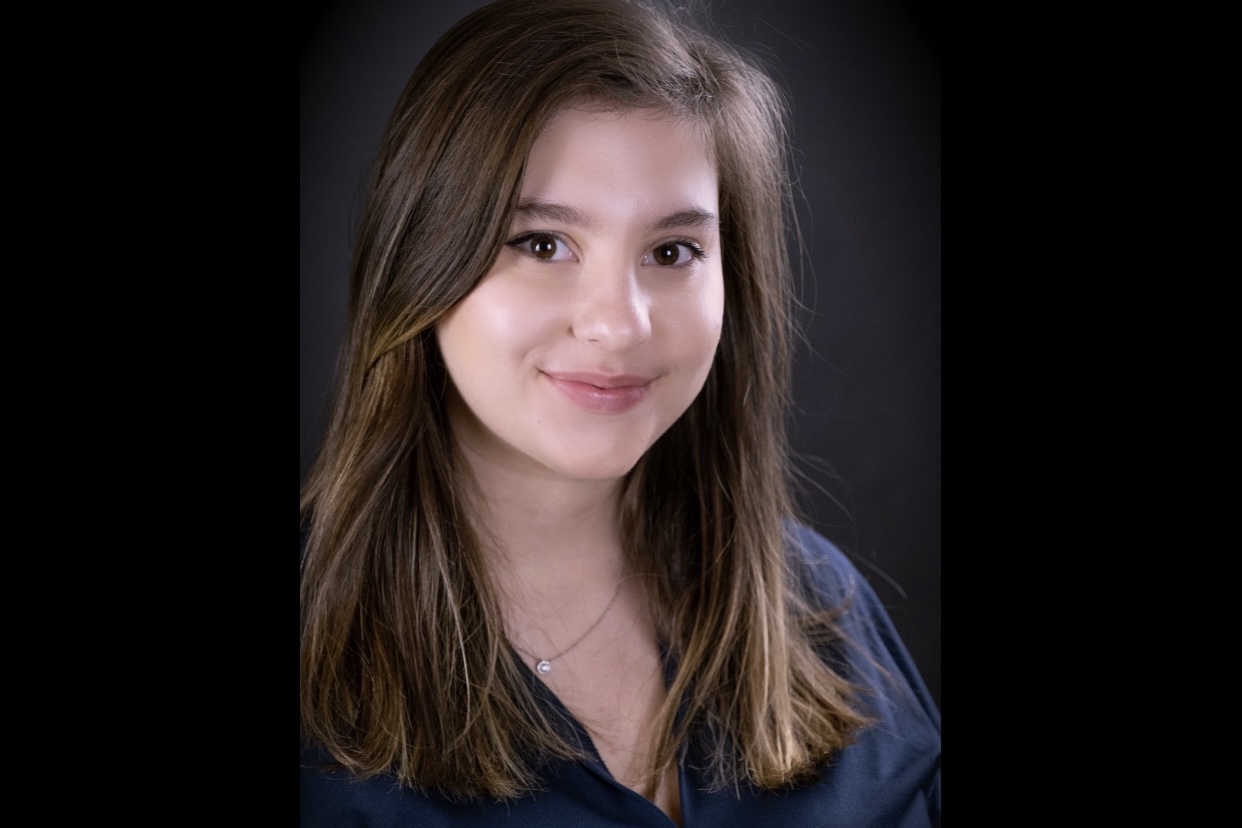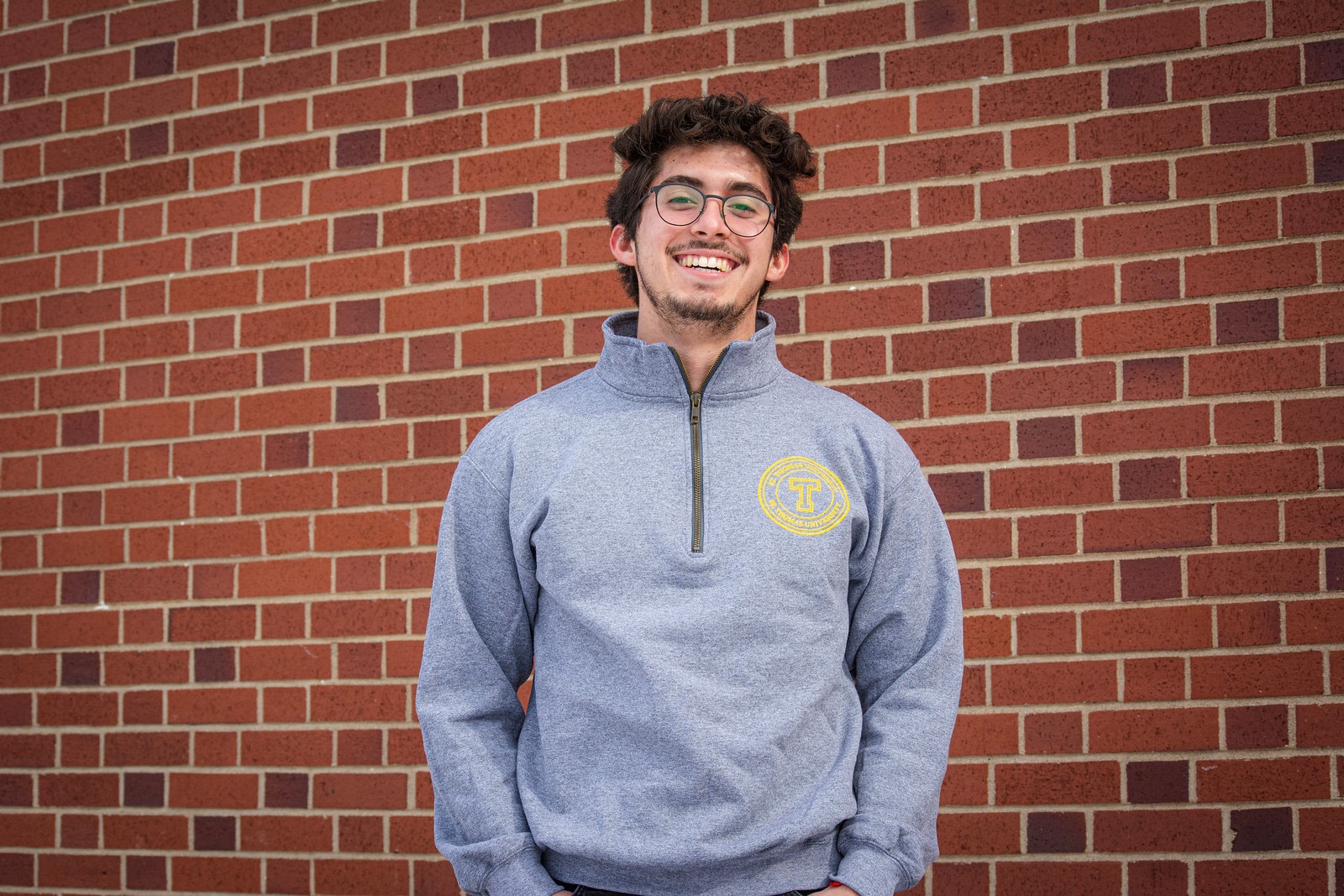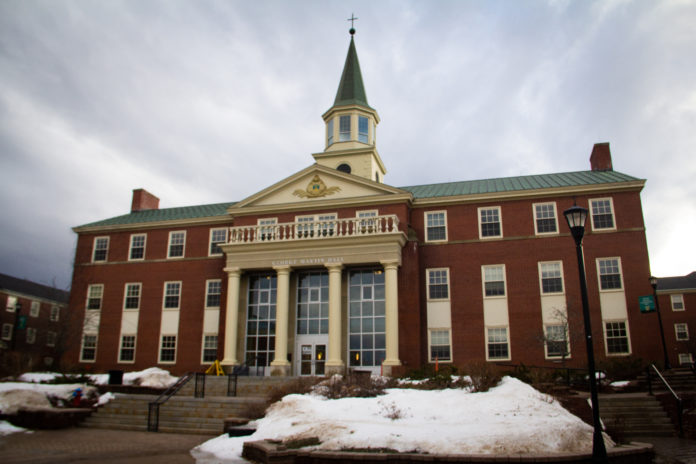The St. Thomas University Students’ Union revealed Wednesday the results of its spring general election, which saw all participating candidates run unopposed and a significant decline in voter turnout.
STUSU posted the results on social media shortly after polls closed at 6 p.m. According to online voting ballots, only 9.1 per cent of eligible students voted — a big drop from 14.1 per cent of students who cast their ballots in 2022.

Stevie DeMerchant, a fourth-year student honouring in criminology and current Indigenous student representative on STUSU, was elected as the first Wolastoqiyik president of the students’ union.
“So excited to begin this journey,” she said in a brief Facebook post.
The Aquinian contacted DeMerchant for an interview, but she could not provide one due to scheduling.
In addition to acting as president for next year, she will also serve as co-chair of the National Indigenous Advocacy Committee with the Canadian Alliance of Student Association (CASA).
According to her campaign biography, DeMerchant said her initiatives focus on student engagement, raising awareness of key student services, and advocating for student rights and equity.
“I would continue to focus on advancing accessibility for all students and strive to ensure that the Students’ Union acts in the best interest of students by nurturing a safe, inclusive, and accessible experience both academically and socially,” she said in the biography.
“It would be an honor to represent the voice of our undergraduate students as we strive for a smooth student experience.“


Emily Boucher, a third-year honouring in history, told The Aquinian she was “beyond thrilled” to be elected vice president of education. In the role, she said she wants to focus on sustainability, inclusivity and compassion.
As a self-described “type A go-getter,” Boucher said she is devoted to her work and wants to ensure she can address all student concerns.
“I intend to be an authentic spokesperson for STUdents and for Liberal Arts, increase the university’s involvement within the community and ensure STU’s education is accessible, inclusive and welcoming for all,” she said in her campaign biography.
She expects learning curves because this is her first position at STUSU, but feels thankful that students put their faith in her.
“I just encourage the students to reach out with any concerns or suggestions that they have,” said Boucher in an interview. “I [am] a first-generation student who is registered with accessibility, so I know all of the concerns that you may have.”


Ahmik Burneo, a third-year student from Ecuador honouring in international relations, was elected vice president of administration. His first reaction to the win was excitement, saying he always wanted to “serve this wonderful community.”
Prior to his appointment to STUSU, he also served as a president of the St. Thomas University International Students Association (STUISA).
He focused his STUSU campaign on making the STU community more integrated, “serving with transparency, accountability, and leadership.“
He expects inflation to be one of the challenges he will have to confront when he takes on the position, as he feels students will be impacted the most.
“It’s good to see a huge team,” Burneo told The Aquinian in an interview.
“Every single one of them is definitely committed to representing and advocating for [students’] rights and benefits.”


Isabella Baralt, a third-year student from Venezuela earning a double major in international relations and communications and public policy, was elected as STUSU’s vice president of student life.
Running on a platform of advocating in support of student interests, she pledged to ensure STU students have “the best experience possible,” saying she would work to understand their needs, ideas and interests.
Baralt said she feels proud of herself for winning and aims to focus on declining student engagement with committees, councils and events.
“It is not a lie or secret that [student] engagement has been very low on campus,” said Baralt in an interview.
“People don’t know what STUSU is … and it’s really sad because it also affects the campus experience.”
In addition to the executive team, STUSU also announced the winners for its representative positions.
Emma Craib and Taylor Armstrong will sit on STUSU as its two off-campus representatives. Lauren Hayes will continue as an at-large representative, and Jonah Simon will act as the board of governors representative.
Colby Beers has been elected to STUSU as social inclusion representative, and Ana Lucia Pavon will take on the role of international student representative for the 2023-24 academic year.
Emmanuelle Jackson is STUSU’s new sexuality and gender diversity representative, a role that has been vacant since the spring of 2021 when the former representative, Ty MaGee, was elected as STUSU president for the 2021-22 academic year.
According to Simply Voting, the software used by STUSU to conduct online voting, 1,642 people were eligible to vote in this year’s general election. But out of that number, only 9.1 per cent of students — which equals 150 — turned in ballots.
It’s a significant decline from the 2022 general election, where 1,686 students were eligible to vote, but only 14.1 per cent of them — equal to 237 students — went to the polls.

